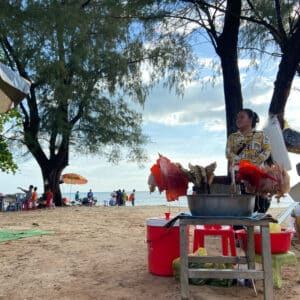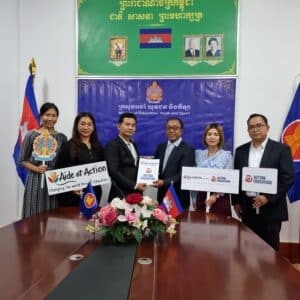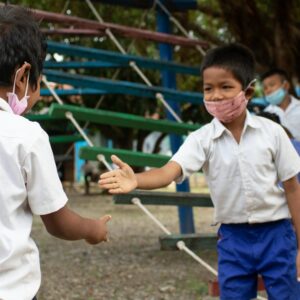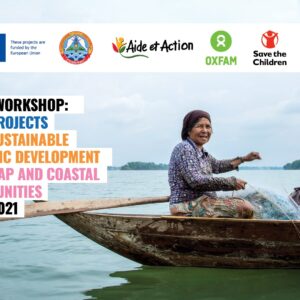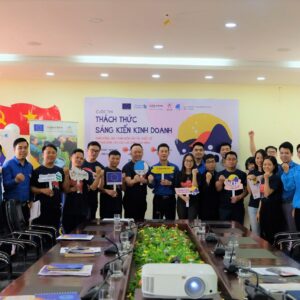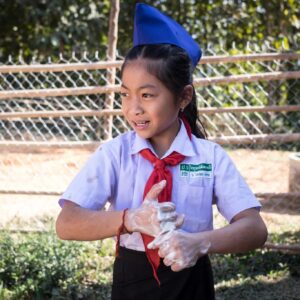Thirty-two years after the adoption by the United Nations General Assembly of a text guaranteeing the rights of the child, they are still struggling to be respected in the world today. Non-governmental organisations (NGOs) and associations, including Aide et Action, are mobilising today to make children’s voices heard and to ensure that their rights become a priority.
On November 20, 1989, the Convention on the Rights of the Child (CRC) was unanimously adopted at the United Nations General Assembly, the first binding text to make² children under 18 in their own right, bearers of fundamental rights, both social, economic, civil, cultural and political. Thirty-two years later, on the occasion of World Children’s Day 2021 (20 November), it is clear that, even if significant progress has been made, particularly in the area of child health, the rights of the child are still hardly applied in the world.
A binding text and yet….
- 1 in 6 children now live in extreme poverty (World Bank, 2020)
- 12 million girls are married every year including two million before their 15th birthday (Save The Children 2020)
- Before Covid-19, 258 million children – the equivalent of one-sixth of the global population of school-age children – were out of school (UNESCO 2018)
These alarming figures, which are still at risk of worsening due to the economic and social consequences linked to the COVID-19 pandemic, clearly show that a huge gap remains between the legal framework that promotes the rights of the child in many countries. The rights of the child may well be proclaimed universal, they are far from being respected, including in developed countries.
But how can we still explain today that the rights of the child are struggling to be implemented? First reason: the CRC may be a binding text but the fact remains that not respecting it does not lead to any sanctions. The Committee on the Rights of the Child, in charge of ensuring its proper application, analyses the situation of children’s rights in countries that have ratified the CRC approximately every five years. But when rights are violated, the Committee has absolutely no sanctioning power and countries are not compelled to implement its recommendations. The second reason: perhaps more worrying, children, despite existing texts, are still very rarely considered as subjects of rights.
Subjects of rights who ignore each other
Poverty, disease, successive economic, political, migratory, environmental or health crises hit children hard and deprive them, like many adults, of access to their most basic rights. But unlike adults, children suffer more than they act. Their best interests are rarely taken into account. They are poorly informed of their rights, deprived of the means to defend and enforce them, effectively silenced and kept in limbo. All over the world, they face a lot of discrimination and are often not included in decision-making on issues that concern them.
The participation of children is, however, a right that conditions all other rights and is the basis of the best interests of the child. All children must be able to express themselves, be informed of their rights, have access to justice, care, be heard and be consulted in all decisions that concern them. Only such participation enables the child to have a role, to no longer be an object of law but to fully become a subject of law. Yet even today, children are very rarely consulted, let alone involved in the development of public policies that directly affect them.
Mobilise and raise awareness of children’s rights: the role of NGOs and Aide et Action
Faced with such findings, many associations and NGOs, including Aide et Action, are making children’s rights a priority in their actions on the ground and in their advocacy. As part of our development projects, we ensure that the rights of the child are fully respected, starting with the participation of children. The establishment of school governments, for example, where children elect representatives of their own ages so that they can speak out loud and clear about their problems and find solutions to them, allows children to become aware of themselves and to be agents of change in their own social context. Education not only is a basic right of all children but awareness of children’s rights begins with education.



